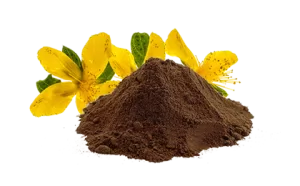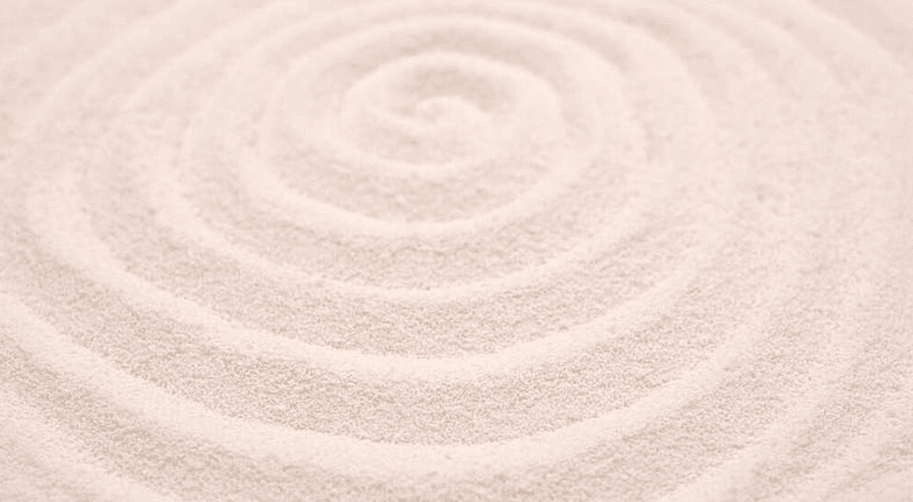Introduction
St. John’s wort extract, derived from the flowering plant *Hypericum perforatum*, has a long history of use in traditional medicine and is gaining recognition in modern healthcare practices. Known for its potential antidepressant effects and other therapeutic properties, St. John’s wort extract has sparked interest in both scientific research and alternative medicine. This comprehensive article aims to delve into the nature of St. John’s wort extract, including its physical and chemical characteristics, sources, applications across various fields, potential health effects, associated side effects, regulatory considerations, and future research directions.
What is St. John’s Wort Extract?
St. John’s wort extract is obtained from the flowering tops of the *Hypericum perforatum* plant, commonly known as St. John’s wort. This perennial herbaceous plant is native to Europe but is now found in many parts of the world with temperate climates. The plant blooms with yellow, star-shaped flowers and has been used historically for its medicinal properties dating back to ancient Greece.
Physical and Chemical Properties
St. John’s wort extract typically appears as a dark reddish-brown to brown liquid or powder, depending on the extraction method and processing. It contains a complex mixture of bioactive compounds, including Hypericin, hyperforin, flavonoids (such as quercetin and rutin), and phenolic acids. These constituents contribute to its pharmacological effects, which include antidepressant, anti-inflammatory, and antioxidant properties.
Natural Sources of St. John’s Wort Extract
The primary source of St. John’s wort extract is the *Hypericum perforatum* plant. It grows wild in meadows, pastures, and along roadsides in temperate regions. Cultivation of St. John’s wort for medicinal purposes involves harvesting flowering tops rich in bioactive compounds. The plant’s active ingredients are extracted using various methods to create standardized extracts for medicinal and therapeutic use.
Extraction Methods
Extracting St. John’s wort extract involves methods that maximize the yield of bioactive compounds while ensuring their stability and potency. Standard extraction techniques include:
– Solvent Extraction: Using solvents such as ethanol or methanol to dissolve and extract the lipophilic constituents, including Hypericin and hyperforin.
– Supercritical Fluid Extraction: Employing carbon dioxide (CO2) under high pressure and temperature to extract a broad spectrum of bioactive compounds while minimizing thermal degradation.
– Percolation: Allowing solvents to pass through a column packed with St. John’s wort plant material to extract desired compounds efficiently.
Each extraction method influences St. John’s wort extract’s chemical composition and biological activity, tailored for specific applications in pharmaceuticals, dietary supplements, and herbal remedies.
Applications in Different Fields
Traditional Medicine
St. John’s wort has a rich history in traditional medicine, particularly in Europe, where it has been used for centuries to treat various ailments. Traditionally, it has been employed as a remedy for wounds, burns, nerve pain, and emotional disorders. Its use as an herbal treatment for depression and mood disorders has garnered significant attention and remains a cornerstone of its traditional therapeutic applications.
Mental Health and Psychiatry
One of the most recognized applications of St. John’s wort extract is in the management of mild to moderate depression and related mood disorders. Studies have suggested that St. John’s wort may act similarly to conventional antidepressants by inhibiting the reuptake of serotonin, dopamine, and norepinephrine neurotransmitters in the brain. This mechanism is believed to contribute to its antidepressant effects and mood-stabilizing properties.
Antioxidant and Anti-inflammatory Effects
Beyond its effects on mental health, St. John’s wort extract exhibits antioxidant and anti-inflammatory properties. The flavonoids and phenolic acids present in the extract scavenge free radicals, reduce oxidative stress, and modulate inflammatory pathways in the body. These actions may contribute to its therapeutic benefits in chronic inflammation and oxidative damage conditions.
Skin Care and Wound Healing
Topical preparations of St. John’s wort extract have been used traditionally to promote wound healing, reduce inflammation, and alleviate symptoms of minor skin irritations. When applied topically, the extract’s antimicrobial properties may also contribute to its effectiveness in treating cuts, burns, and insect bites.
Health Benefits of St. John’s Wort Extract
Antidepressant Effects
The primary health benefit associated with St. John’s wort extract is its potential antidepressant effects. Clinical trials and meta-analyses have suggested that St. John’s wort may be effective in alleviating symptoms of mild to moderate depression, comparable to selective serotonin reuptake inhibitors (SSRIs) commonly prescribed for depression. It is believed to enhance mood, reduce feelings of sadness and anxiety, and improve overall emotional well-being.
Mood Regulation and Anxiety Relief
In addition to depression, St. John’s wort extract may have benefits in managing anxiety disorders and promoting emotional stability. Some studies indicate that it may help reduce symptoms of generalized anxiety disorder (GAD) and improve coping mechanisms during periods of stress. These effects contribute to its reputation as a natural mood enhancer and stress reliever.
Cognitive Function and Neuroprotection
Emerging research suggests that St. John’s wort extract may exert neuroprotective effects and support cognitive function. Animal studies have demonstrated its potential to enhance memory, protect against neurodegenerative processes, and promote neuronal health through antioxidant and anti-inflammatory actions. Further research is needed to explore its implications for neuroprotection in human populations.
Menopausal Symptoms
Some studies suggest that St. John’s wort extract may offer relief from menopausal symptoms such as hot flashes, mood swings, and sleep disturbances. Its hormonal balancing effects and mood-regulating properties may help mitigate the psychological and physical challenges associated with menopause. However, more clinical evidence is required to confirm its efficacy and safety.
Potential Side Effects and Considerations
While generally considered safe when used appropriately, St. John’s wort extract may cause adverse effects and interactions under certain circumstances:
– Photosensitivity: One notable side effect of St. John’s wort extract is increased sensitivity to sunlight (photosensitivity). The extract’s Hypericin and other photosensitizing compounds may cause skin reactions when exposed to ultraviolet (UV) light, leading to sunburns or rashes. Individuals using St. John’s wort should avoid prolonged sun exposure and use sunscreen to minimize the risk of photosensitivity reactions.
– Drug Interactions: St. John’s wort extract can interact with various medications, including antidepressants, anticoagulants, oral contraceptives, and immunosuppressants. It may affect drug metabolism enzymes in the liver, leading to altered drug concentrations and potentially reducing the effectiveness of medications or causing adverse effects. Healthcare providers should be informed of St. John’s wort use to prevent potential drug interactions and ensure safe treatment outcomes.
– Gastrointestinal Upset: Some individuals may experience mild gastrointestinal symptoms such as nausea, stomach upset, or diarrhea with St. John’s wort use, particularly when starting treatment or with high doses.
Regulatory Aspects and Safety
Regulatory oversight of St. John’s wort extract varies globally. It is classified as a dietary supplement or herbal remedy in many countries, subject to regulations ensuring product safety, quality, and labeling accuracy. Regulatory agencies such as the FDA (Food and Drug Administration) in the United States and the EMA (European Medicines Agency) in Europe provide guidelines for St. John’s wort’s use in supplements and medicinal products to protect public health.
Future Directions and Research
Future research into St. John’s wort extract aims to address remaining questions and expand its therapeutic applications:
– Clinical Trials: Conducting rigorous clinical trials to evaluate further the efficacy and safety of St. John’s wort extract in treating depression, anxiety disorders, and other mental health conditions.
– Mechanistic Studies: Investigating the specific mechanisms by which St. John’s wort exerts its antidepressant and neuroprotective effects, including interactions with neurotransmitter systems and inflammatory pathways.
– Formulation Development: Developing standardized formulations and delivery systems to enhance St. John’s wort extract’s bioavailability, stability, and therapeutic efficacy for clinical use.
Conclusion
In conclusion, St. John’s wort extract represents a valuable botanical remedy with multifaceted therapeutic potential, particularly in managing depression and mood disorders. Its historical use in traditional medicine and growing scientific evidence underscore its relevance in modern healthcare practices. However, the potential for side effects and drug interactions necessitates cautious use and supervision by healthcare providers.
Continued research and clinical advancements will continue to illuminate the mechanisms of action, expand therapeutic applications, and optimize the safe use of St. John’s wort extract in promoting mental health and overall well-being. Embracing the synergies between traditional knowledge and scientific inquiry holds promise for integrating St. John’s wort into holistic approaches to mental health and enhancing quality of life worldwide.



